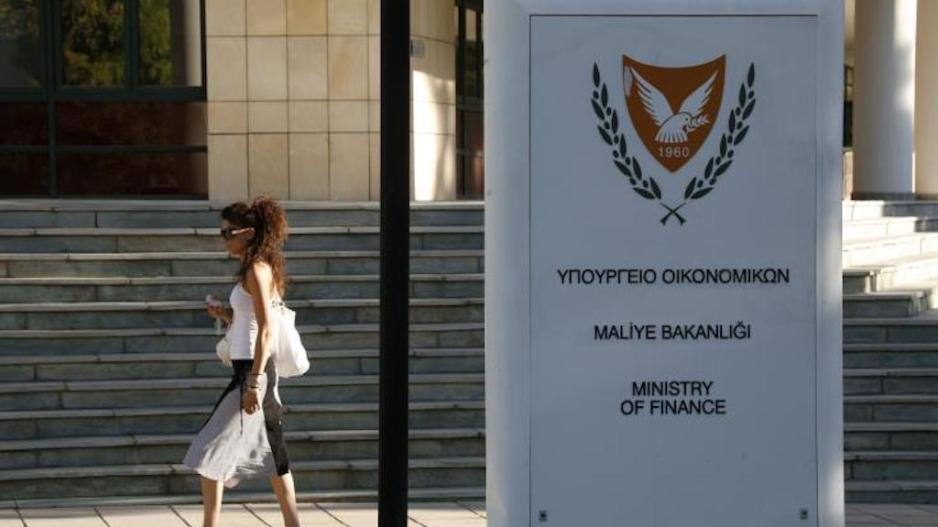Further Deliberations Ahead for the Establishment of a Unified Regulatory Authority
Keravnos Also Emphasized Cyprus’ Aim to Become a Fully Digitalized State Offering High-Quality Services
The Finance Minister, Makis Keravnos, announced that there will be an additional consultation before finalizing decisions on establishing a Unified Supervisory Authority. Speaking at the "The Future of Business and Adaptation to the Changing Landscape" conference, organized by CIM-Cyprus Business School and hosted at the Central Office of the Bank of Cyprus in Nicosia, Keravnos confirmed the government’s commitment to this initiative.
Answering a query about the Ministry of Finance's next steps regarding the creation of the Unified Supervisory Authority, Minister Keravnos emphasized the government’s decisive progress in this area. “There are definite gaps in this sector, and we continuously see the impacts. Hence, we must promptly proceed with the Unified Supervisory Authority,” he stated.
Keravnos noted that the next phase involves further consultation, followed by final decision-making.
The decision to establish a unified supervisory authority for administrative service providers was made by the Council of Ministers on February 27. This decision prompted reactions from professional associations, leading the Ministry of Finance to release a statement on Friday. It highlighted that “definitive statements and heightened tones in public do not serve the public interest or facilitate the best solutions.” The Ministry also reaffirmed its longstanding practice of keeping the door open for dialogue.

Moreover, Makis Keravnos emphasized Cyprus’ aim to become a fully digitalized state offering high-quality services. He noted the global economy's exceptional uncertainty following the pandemic, the war in Ukraine, and the turmoil in the Middle East, highlighting these events' impact on the economic outlook and inflation.
Keravnos shared that the Cyprus economy has outperformed the euro area average, with a growth of 2.5% in 2023 and a significant decrease in inflation to 3.5%, down from 8.4% in 2022. He pointed out Cyprus' fiscal prudence, declining public debt trend, and the country’s upgraded investment grade rating by all agencies.
Acknowledging the challenges ahead, Keravnos stressed the importance of maintaining positive momentum and addressing the uncertainties, especially in geopolitics. For 2024, he projects economic growth of around 2.9% and a further drop in inflation to 2.5%.
The Finance Minister highlighted the government’s short-term focus on mitigating the negative impacts of these developments, with measures targeting vulnerable groups and readiness to adopt further steps if necessary. He underscored the need to balance immediate societal needs with the economy's long-term wellbeing, maintaining macroeconomic stability and establishing a business-friendly regulatory environment.
Discussing the Government's 5-year Plan, Keravnos mentioned it includes structural reforms and investments aiming to enhance the country’s long-term growth potential. This strategy aligns with the EU's Recovery and Resilience Facility, which allocated €1 billion to Cyprus and aligns with “Vision 2035.” The Plan seeks to diversify the economic growth model, develop knowledge-intensive sectors, and strengthen traditional sectors.
Keravnos highlighted significant reforms, such as modernizing the public sector, to enhance public service productivity and efficiency. The digital transition aims to create a fully digitalized state that offers quality services to citizens and businesses, fostering the development of new sectors.
Comprehensive tax reform is also on the agenda, focusing on modernizing the taxation framework, increasing competitiveness, reducing administrative burdens, and ensuring fairer tax burden distribution.
Regarding the green transition, the primary objective is to meet the EU's ambitious targets through various measures, including schemes to adopt Renewable Energy Resources, promote the circular economy, and implement green taxation reform.
The Minister also mentioned the successful implementation of the Strategy for attracting businesses, with initiatives like establishing a Business Facilitation Unit and introducing a digital nomad visa, two policies adopted by the previous government. He also mentioned revising policies for temporary residence and employment permits for third-country nationals in foreign interest companies.
Concluding, Keravnos reaffirmed the government's commitment to remain vigilant and responsive to the evolving economic landscape, ready to adopt necessary measures as needed.






